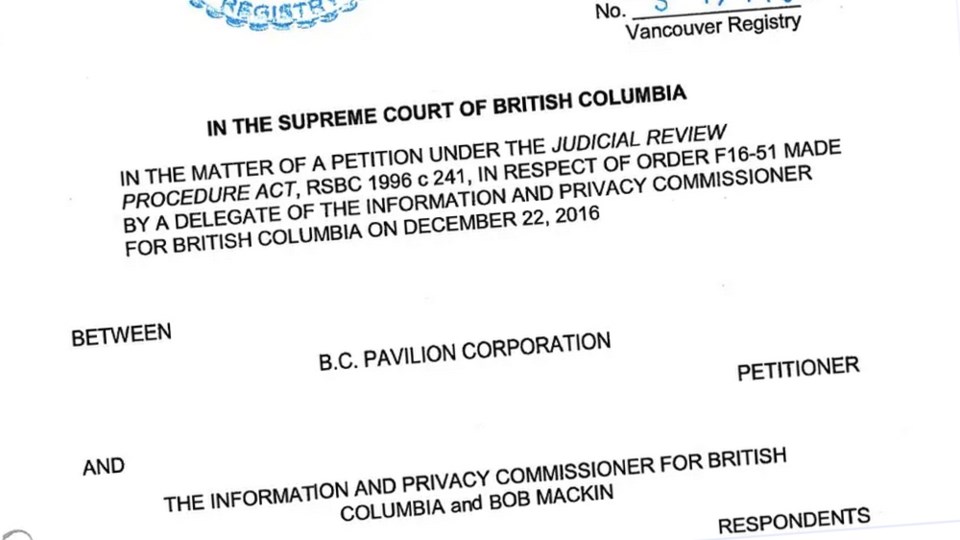The exclusive and expensive conference for innovators and celebrities is back at the Vancouver Convention Centre, after two years of pandemic cancellations.
TED, which stands for technology, entertainment and design, returns April 10-14 with headliners Bill Gates, Al Gore and Elon Musk. Tickets start at $5,000, but are sold out. The $250,000, five-year membership includes a concierge and meet and greets with speakers.
The trendy talkathon moved north in 2014 from Long Beach, Calif. It took until 2021 for B.C. Pavilion Corp. (PavCo), the Crown corporation that runs the venue, to release the contract under B.C.’s freedom of information law.
Then-director of operations Katherine McCartney signed the contract on Jan. 23, 2013. It had been originally labeled “Confidential Conference.” TED booked March 11-22, 2014, with a negotiated room rental charge for use of the entire west building for $224,000 including taxes. Jack Poole Plaza and the West Pacific Terrace were available at no additional rent. Food and beverage service, housekeeping, security, lighting, telecommunications were extra, but the contract included a tax relief clause that sweetened the deal.
“If at least 75% of the delegates are reasonably expected to be non-residents of Canada, then 100% of taxes on eligible convention related goods and services that are booked through the Convention Centre will be fully rebated,” the agreement stated. “50% of the taxes on eligible convention related food and beverage booked through the Convention Centre will also be rebated.”
The contract listed 11 pages showing the day-by-day usage for each room, including CNN, Japanese translation, kids room, “media cave,” film crew studio, community food and beverage, and “speed meetings.”
In 2014, Tourism Vancouver estimated the meeting of 1,200 to 1,500 delegates would translate to $2.2 million in direct visitor spending or an overall impact of $4.5 million. By comparison, in 2019, Port Vancouver said each cruise ship calling at the Canada Place terminal leaves a $3.17 million impact.
McCartney declined comment. Her North Vancouver agency, PDW Inc., produced TED until 2018 when she became a consultant. She said she would be attending the 2022 conference, but had no comment. TED’s press office did not respond by deadline.
The organization behind TED was rocked by a #MeToo scandal in November 2017, when the Washington Post reported that two men had been “disinvited” after allegations that at least five people, including a speaker, had been harassed or groped at that year’s conference.
When the pandemic hit, New York-headquartered TED Conferences LLC received a $3,896,015 Paycheck Protection Program loan from the U.S. government in April 2020 to keep 255 people employed. The ProPublica “Tracking PPP” database shows the loan was forgiven as of June 25, 2021.
The organization’s motto is “ideas worth spreading,” but it did not want details of the Vancouver Convention Centre contract to be shared.
After the initial November 2013 FOI request, PavCo denied access in January 2014, claiming disclosure would harm PavCo finances and TED’s interests. An adjudicator with the Office of the Information and Privacy Commissioner issued a disclosure order in December 2016 with a February 2017 deadline. Negotiated contracts between public bodies and private entities cannot be withheld, ruled adjudicator Celia Francis.
Neither PavCo nor TED “demonstrated a clear and direct connection between disclosing the information in dispute and the alleged harms,” Francis wrote. “Rather, they provided assertions, unsupported by evidence, which do not persuade me that disclosure of the information in dispute could reasonably be expected to result in harm.”
In its submissions, PavCo had called TED a “powerful economic engine” for Vancouver and “fundamental to the fulfillment of PavCo’s economic mandate.”
In an unusual move, PavCo’s in-house lawyer, Clark Ledingham, also acted as the lawyer for TED, instead of TED hiring its own lawyer. In McCartney’s June 2016 affidavit, she swore that contract negotiations began in November 2012 and said TED would move elsewhere if the contract became public.
“Disclosure of the information requested in this Inquiry would have a detrimental impact on our business relationship with PavCo because TED would no longer be able to trust, through no fault of PavCo, that information we consider to be commercially sensitive will remain confidential,” McCartney’s affidavit said.
At the time of the inquiry, TED did not have a signed agreement past 2017, but had reserved tentative dates at VCC up to 2026.
The disclosure ruling triggered PavCo’s application for a BC Supreme Court judicial review. It finally relented in May 2021, discontinued the court action and released the contract.






